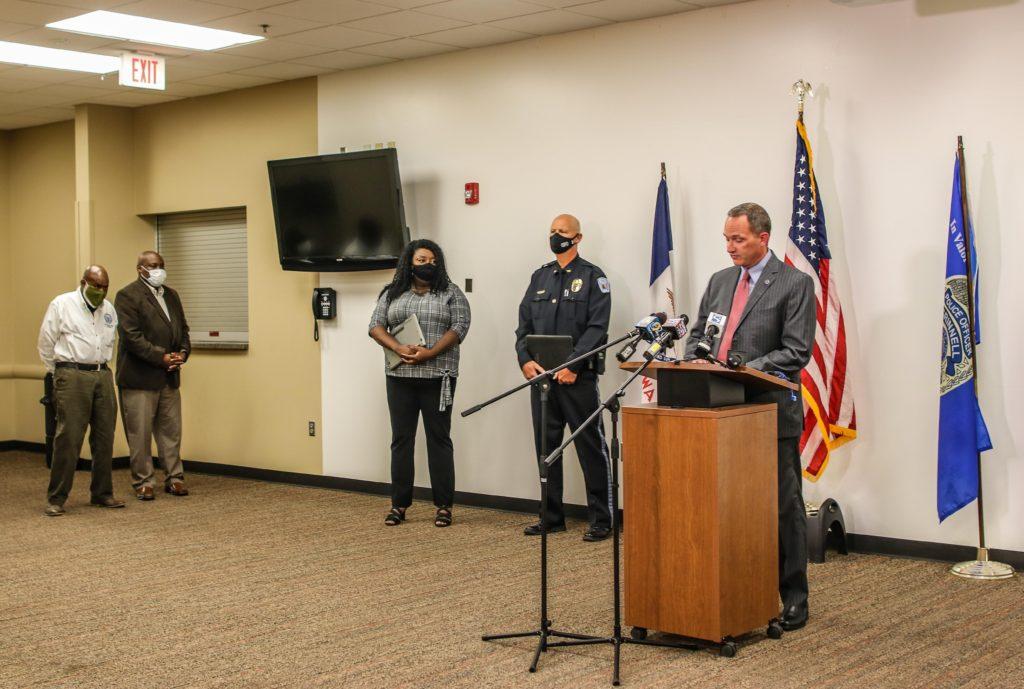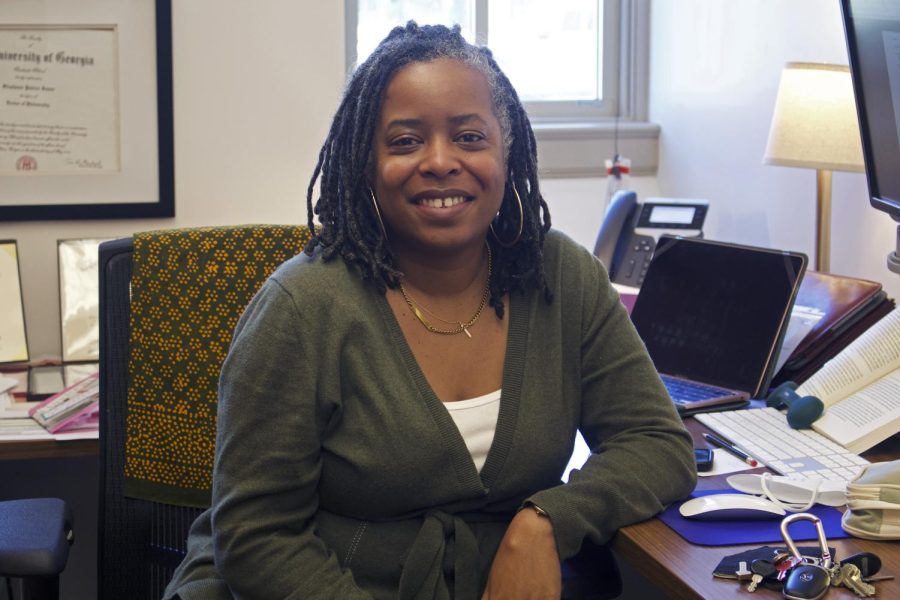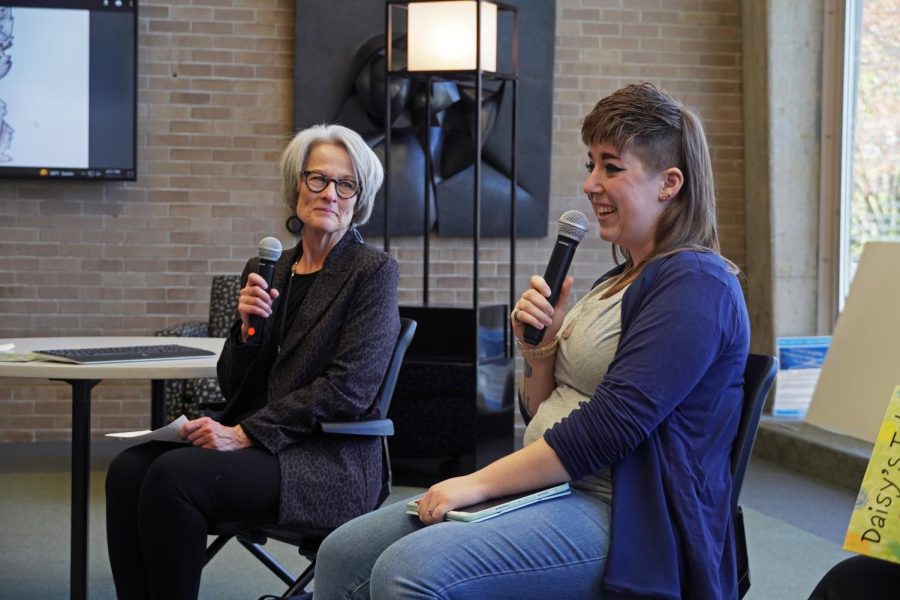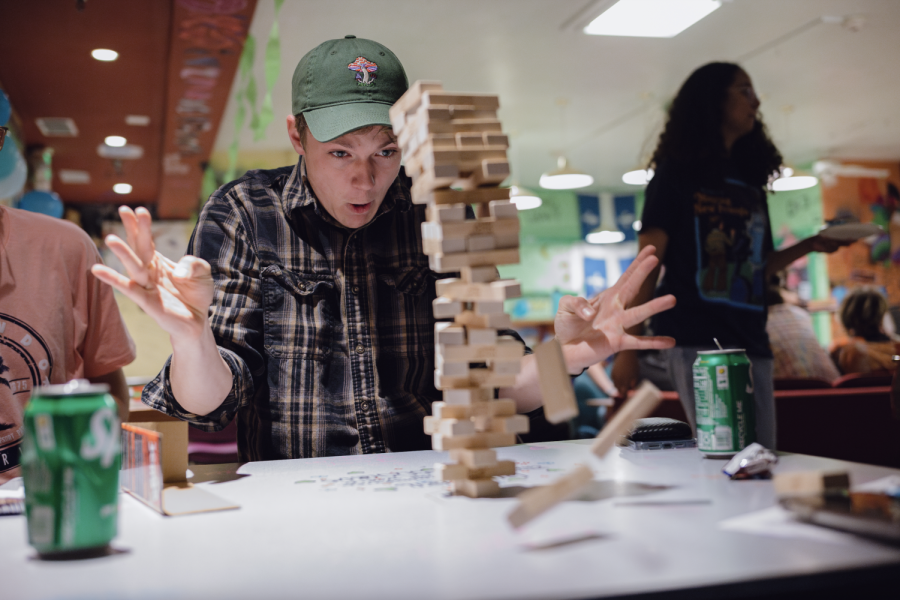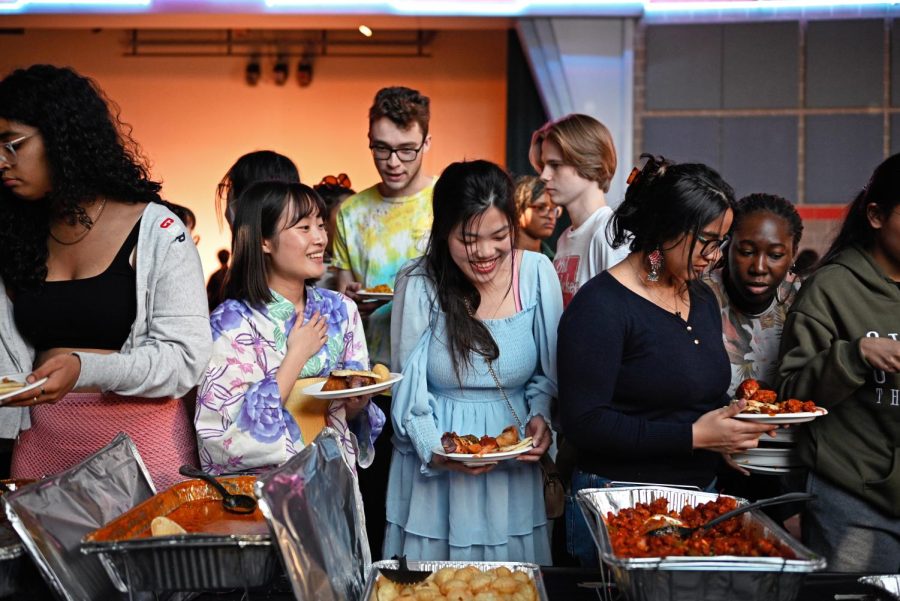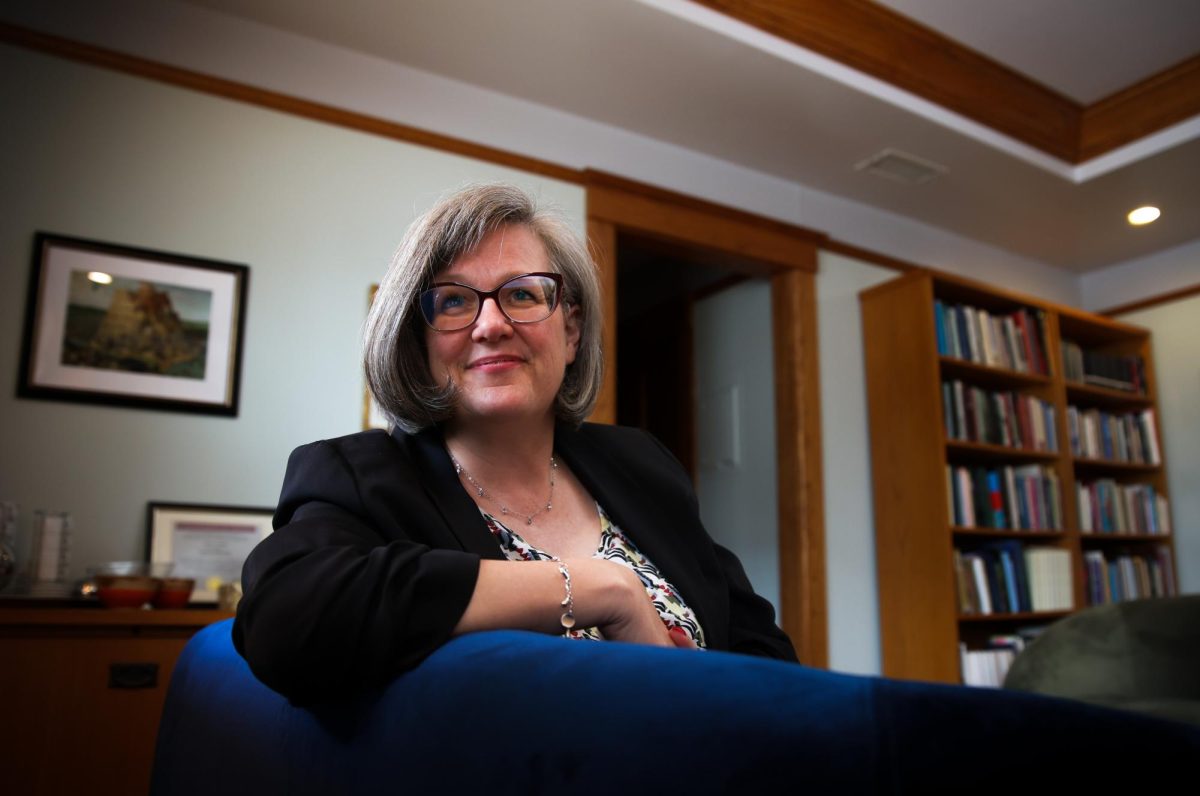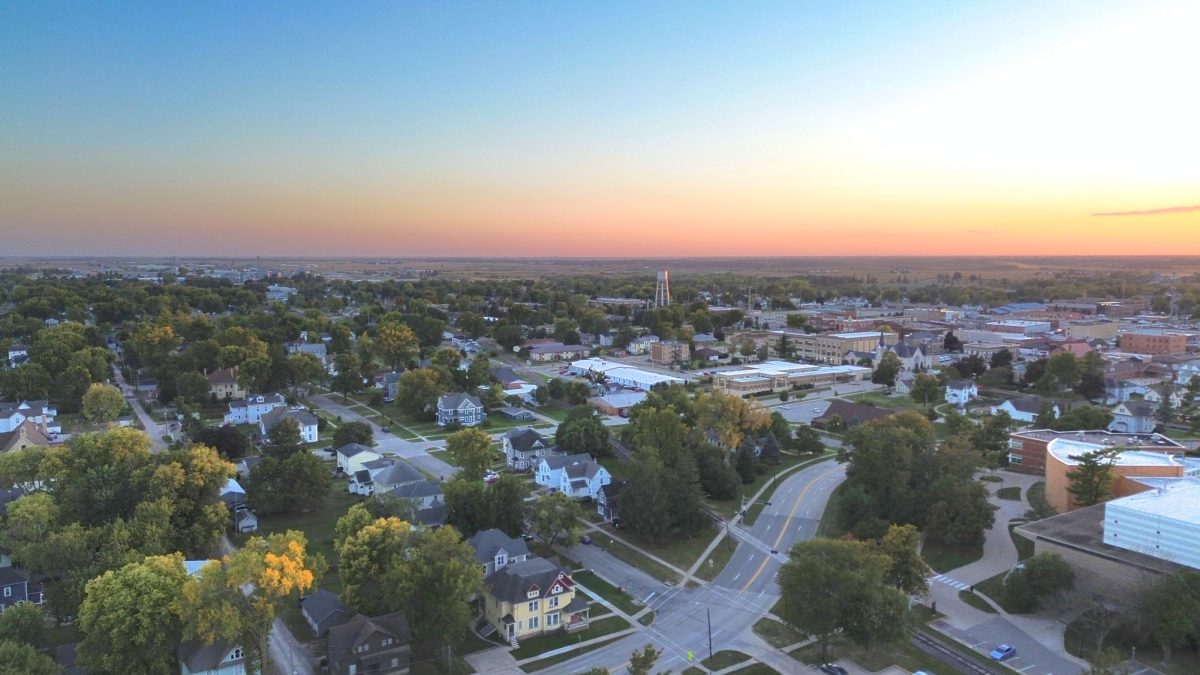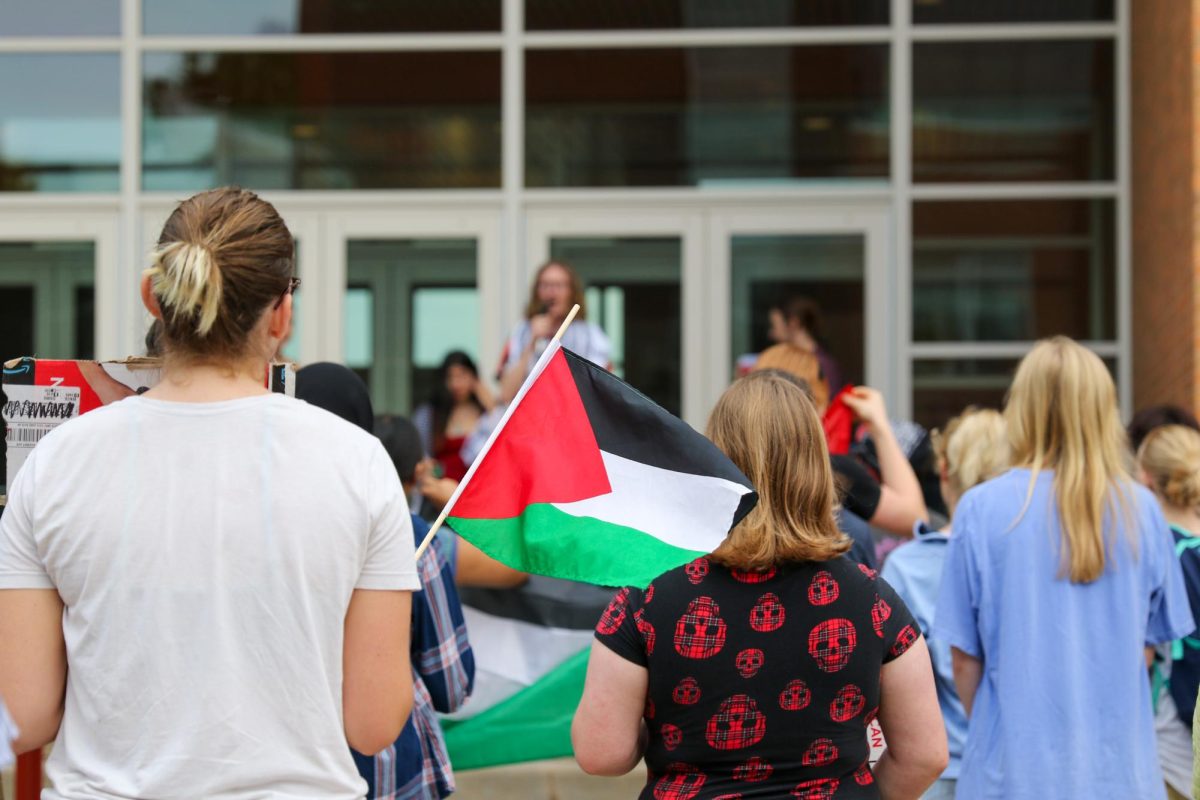Law enforcement officials announced today that four individuals have been accused in a criminal complaint in connection with the alleged murder of 44-year-old Michael Williams, a Black Grinnell resident whose burned body was found in a ditch near Kellogg, Iowa. All four currently remain in police custody and charges will be filed in the coming days.
31-year-old Steven Vogel was already in custody in Marshall County when he was accused of first degree murder and abuse of a corpse. 55-year-old Julia Cox, 57-year-old Roy Garner and 29-year-old Cody Johnson were also accused of abuse of a corpse and accessory after the fact. Cox and Garner face further accusations of destruction of evidence. All four are residents of Grinnell.
Iowa Department of Public Safety Special Agent Adam DeCamp, the lead investigator in the case, said at a press conference today in Grinnell that Williams had been killed in Grinnell on or around Sept. 12. His body was then kept at a house in town for four days before it was transferred to rural Kellogg on the afternoon of Sept. 16, where it was subsequently set ablaze. DeCamp identified the cause of death as strangulation.
DeCamp said that there was no evidence to suggest the acts against Williams were racially motivated. He confirmed that Williams was a known acquaintance of Johnson and Vogel, and that they “often socialized within the same circles.” DeCamp declined to identify a motive at this time.
Betty Andrews, President of the Iowa-Nebraska National Association for the Advancement of Colored People (NAACP) also spoke at the press conference, flanked by Kevin Sanders, president of the Iowa City chapter of the NAACP, and Arnold Woods Jr., his counterpart in Des Moines. Andrews said that the Iowa-Nebraska NAACP had received numerous calls., including many from out of state, asking whether Williams’ killing was racially motivated.
“It is understandable that having the body of an African American found burning in a small town in Iowa would raise several red flags and concerns,” Andrews said.
Andrews and her colleagues met with both Special Agent in Charge DeCamp and Grinnell Police Chief Dennis Reilly on Monday night. “They answered our questions. We questioned their answers. They answered more questions,” said Andrews. She and her colleagues asked the officials specifically about the dynamics of race within the well established relationships between the victim and suspects, and reviewed witness testimony, the medical examination and the circumstances of the crime.
“At this time, the NAACP sees no indication that Mr. Williams was targeted because of his race,” Andrews said.
But Andrews also noted that the NAACP would be open to revising this statement if presented with new information. Andrews said that she had spoken with Williams’ family, his mother Powell Mejias in Syracuse, NY and the mother of his children in Grinnell, Janalee Boldt.
“Justice still is needed in this case and we join the family, law enforcement officials and the community in seeking that justice,” she said.
In an interview with The S&B after the press conference, Andrews said that she understands the fears and concerns of Grinnell College students of color, especially Black students. “This is of my people,” she said. “It is appropriate for us to be vigilant—that’s why we’re here.” She invited Grinnell College students to contact her at iowanebraskanaacp@gmail.com with further concerns.
Andrews remarked on the high level of support for Williams’ family in the community. Two GoFundMe campaigns, one set up by Mejias for funeral expenses and one to benefit Boldt and Williams’ children, have raised $12,143 and $41,671 respectively as of Sept. 22. Boldt also created a Facebook group, Justice for Mike, for those who knew him to share facts of the case as well as memories of Williams. The group currently has 243 members.
“I’m grateful for that [community support]. Quite frankly, a few years back it may not have looked the same,” Andrews said, in reference to the newly heightened awareness many Americans have towards racism and racial violence following highly publicized killings of George Floyd and Breonna Taylor this summer, as well as others.
“It is important that this man didn’t go invisible, that he is seen and his death is acknowledged,” she said.


















































